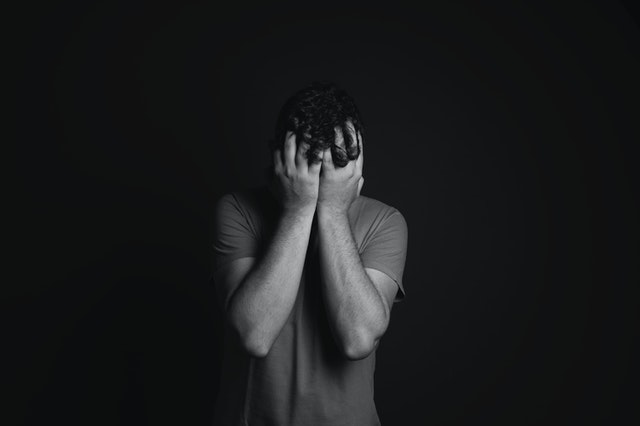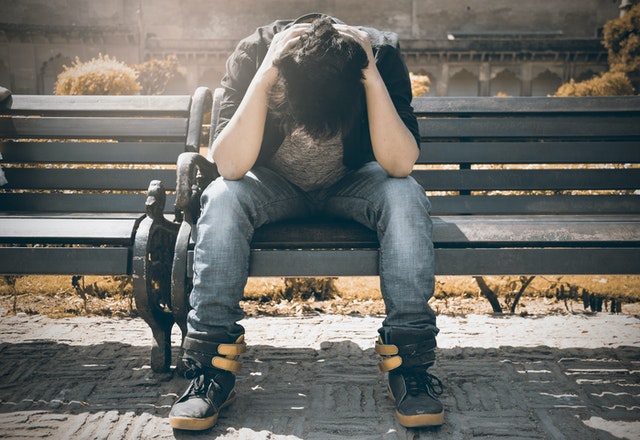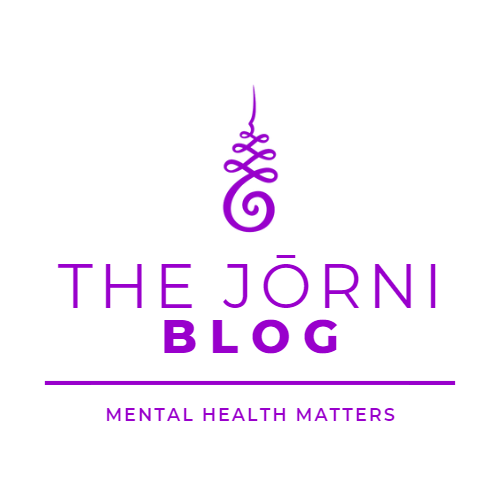
How can I help someone who is depressed?
The difficulty of helping
It can be devastating to watch a loved one struggle with depression. When I was experiencing some of my worst symptoms, I knew that my family was trying to help me. But I found it harder than ever to talk to them or even attempt to share what I was feeling with them. My mom would try and wake me up in the morning and encourage me to get out of bed. She would offer to go out and do things with me like shopping or get a coffee.
Looking back now I understand that she was helping me the best she knew how.
At the time, I felt trapped, judged, and pushed. I simply could not handle the constant “just get up and go” advice from everyone. In my family and circle of friends I did not know anyone with depression. I had nobody to talk to and the Internet was a long way from what it is now. In secret, I started to feel like there was something terribly wrong with me. Why wasn’t I just able to get over this?
The difficulty of explaining
It felt like such an extra responsibility to have to explain everything or talk about what I was going through. The truth is I didn’t even understand it myself, never mind explain it to my family. Most days I was sad, anxious, numb, and tired for really no good reason at all. Nothing bad had happened. I just woke up feeling this way and I went to bed feeling this way. How the heck could I explain that to anyone?
“You have not lived today until you have done something for someone who can never repay you.”
- John Bunyan
I know it was hard for my family to watch me feeling like that. And it’s never easy to approach the subject or even attempt to help. My mom told me later that she was well aware something was wrong. She just did not know how to ask. Or even what to do. She was also afraid that she would make it worse and be the reason I would commit suicide. Many people have the exact same fear when someone they know becomes depressed.

How do you know if a loved one is depressed?
Sometimes you might be aware of the fact that something is generally wrong with someone. But, it can be hard to understand and identify symptoms of depression in a loved one. Especially someone you may not see consistently every day. To understand if someone is suffering from depression, consider the following things.
If you answered yes to a few of these questions, they may be experiencing some form of depression. Keep in mind that depression is quite an individual and complex mental illness and it looks different in everyone. You cannot assume that a person is depressed just because they check some lines off this list.

But, it might give you a good starting point in what to look for. And it might give you a better idea of what helping them might look like or how you could approach the subject. The important thing is that you have already become aware that something is off. The next step is gently find out what is going on and find the help and support they need.

Depression can look different in different people
While depression is unique in everyone, there are trends in how depression looks in certain people. This is definitely not an exhaustive list of symptoms, but it may be a starting point for guidance.
Women
Statistically speaking, women are more likely to develop depression than men. The hormones, biology, or lifecycle of women may contribute to the higher rates of depression. In women, it is more typical to notice symptoms of sadness, guilt and worthlessness. Women are also more likely to experience anxiety as well as depression. Sleep problems and changes in appetite and weight are also common symptoms.
LGBTQ+ Individuals
Lesbian, gay, bisexual, transgender, queer and questioning individuals are three times more likely to experience mental health disorders (including depression and anxiety) than individuals who identify as straight. This community likely experiences high rates of prejudice and discrimination in their society, which can contribute to or cause mental health problems.
In the USA, gay, lesbian and bisexual youths are twice as likely to commit suicide than their heterosexual peers. Depending on age, symptoms of depression can display as higher rates of substance use and self harming behaviour.
Men
Statistically speaking, men are less likely to talk about their depression or seek medical help for it. Symptoms may show as a lack of energy or motivation, be easily frustrated or irritable, and possibly have angry outbursts. They may also start to behave more recklessly and impulsively, often misusing substances as well.

Younger Children
Younger children are a demographic for which we are seeing an increase in depression and anxiety. Symptoms may display as extreme clinginess or having separation anxiety from parents or loved ones. Often, they pretend to be sick in order to avoid going to school or daycare. Some may also express worry that a parent or loved one may die, and seem very preoccupied with the subject.
Older Children and Teens
Older children and teens are more likely to have symptoms of sulkiness, irritability and anger. Substance misuse can be a common symptom, as well as self harm and suicide attempts. In this age group, it is also common to see depression coupled with other mental health disorders such as eating disorders and social anxiety.
Older Adults
Older adults and seniors may have more subtle symptoms of depression. A lack of motivation and a pull back from hobbies or social engagement may be a symptom. But this can be hard to decipher if other medical conditions are also contributing. Feelings of loneliness and grief may be prominent symptoms, as well as changes in appetite.

What does helping look like?
If someone you care about has depression and you want to help, the first step is always to encourage them to see a health care provider and/or a mental health professional. This can be a crucial part of assessing the severity of depression and suicide risk. Once they have seen the appropriate medical professionals, there are still many ways in which you can provide encouragement and support.

How to start the helping conversation
It can be hard to know if/when to bring up the subject of depression with someone you suspect is suffering from it. The thought of bringing it up can seem daunting and intimidating. It is natural to be worried about hurting their feelings or making them angry. When you're considering bringing it up, remember that the way they are feeling is not personally directed at you (although it may sound and feel that way).
Like my mom, you might be afraid that by saying something you might make things worse. Or that you give them the wrong kind of help and they end up committing suicide. You have to understand that this is, in fact, a normal fear because you deeply care about this person. You are facing something unknown and you want your loved one to be alright.

Talking about it may be the first step in helping them, even if they don’t seem responsive to it the first time. The things we say may stay with them, and encourage them to make a better decision at a later time. Having the option of support from someone is always a positive thing for that person.
If you feel you cannot speak to them or your fear of doing something wrong is too great, you can get support as well. You can speak to someone from your community mental health program about your situation. They are trained in helping you with your first conversation and guide you on how to approach the situation.
Ways to start the helping conversation
“I’ve noticed that you’ve been acting differently lately (or mention a specific symptom), and I’m wondering how you are doing?”
“I’ve been concerned about you lately. How have you been doing?”
“I’ve noticed that you’ve been struggling with ____, have you thought about getting help?
Ways you could offer support
Don’t force support or “solutions”. Simply offer help and ask open ended questions about what they may need.
“How can I help you while you’re feeling like this?”
“How would you feel if I helped you with ____?”
“You are important to me and I would like to be there for you.”
Things to avoid saying
“You’re just being lazy. If you work harder, it’ll get better.”
“Cheer up, it’s not so bad. So many people have it way worse than you.”
“You need to snap out of it.”
“Look on the bright side.”
“Don’t be ungrateful for what you do have.”
“That's just in your head.”
“You just have to try harder to feel happy”

Preventing burnout from helping
When you are trying to help someone with depression, the most important thing is to make sure you are taking care of yourself first. Cue the airplane analogy with the oxygen masks here. The truth is that depression is tough to go through. And watching someone suffer from depression can be equally as hard.

It might feel like you’re losing that person. Or like they are slipping away and you are trying to stop them. Remember that mental illness is a serious situation. And you are not responsible to help someone by yourself, nor do you likely have all the skills they may need. If things seem to get worse, get in touch with a mental health professional in your community. And know when to step back and call 911. The person might be angry at you for some time. But that’s much better than if they harmed themselves or worse.
It is important to set boundaries for your self-care while you are helping someone else. It is possible to get completely swept up in someone else’s crisis. So it is vital to set healthy boundaries for yourself so that you don’t suffer health consequences from helping.
It is easy to get caretaker burnout if you are not careful.
If you are having trouble setting healthy boundaries, consider reading up on codependency or get your own support system in place. Therapy might be a great way to get the advice and support you need in order to help someone else without hurting yourself in the process.

The Takeaway
Helping someone with depression can be a big undertaking. The first thing is the awareness that something might be wrong. You may have noticed a change in a loved one or a friend. Maybe they are acting differently than usually. It’s possible they have withdrawn and no longer want to socialize. As someone close, you have picked up on the fact that something has changed.

As your concern grows, it is possible that your loved one is not aware of how they have changed. Some people can tell that they feel off and something has changed. Others think they are just going through a rough patch.
If you want to help, keep in mind that the person experiencing depression may not necessarily be aware of it.
The second thing is deciding how to bring up the fact that you have noticed something wrong. You might not know what exactly to say. You could also be afraid that your loved one might get angry or defensive with you. And often, people are afraid they may say or do something wrong that will make their loved one’s depression worse.
It’s possible that someone with depression may retreat even further because they don’t know how to explain their situation. They may be overwhelmed and scared of what is happening. Sharing or getting help might be the last thing on their mind. You can probably start to see how this situation can be difficult for all parties involved.
Take it one step at a time
If you feel comfortable starting a conversation, this would be a good first step. You can gently check in with your loved one or friend and find out how they are doing. Over time, they may open up and trust you enough to share what is happening. Remember that often depressed people are not looking for you to “solve” their problem. They are overwhelmed and scared and need someone just to listen.
You may get the feeling that things are getting out of hand at some point. This can be the case if your loved one is threatening to harm themselves or others. You may also notice substance abuse issues, which need immediate addressing. In any of those cases, reach out to a health care professional or your local mental health program. They will support you through speaking with your loved one and they can provide the help they will need.

The most important thing while helping someone with depression is taking care of yourself. It is really easy to get caught up in someone else’s crisis and go down the rabbit hole yourself. At some point you may even deal with caretaker burnout, so you need to self-care. Make sure you have a support system of your own and know how to recharge your batteries. You can only fully be there for someone else if you are healthy.
Above all, thank you for trying to support your loved one through depression. It is a tough road and it can be heartbreaking. But, I speak from experience when I say I would not have made it here without the support of my family and friends.
You are the light in someone’s darkness. Thank you for helping!
Sources
https://www.helpguide.org/articles/depression/helping-someone-with-depression.htm
https://www.mayoclinic.org/diseases-conditions/depression/in-depth/depression/art-20045943
https://adaa.org/lgbtq-communities

